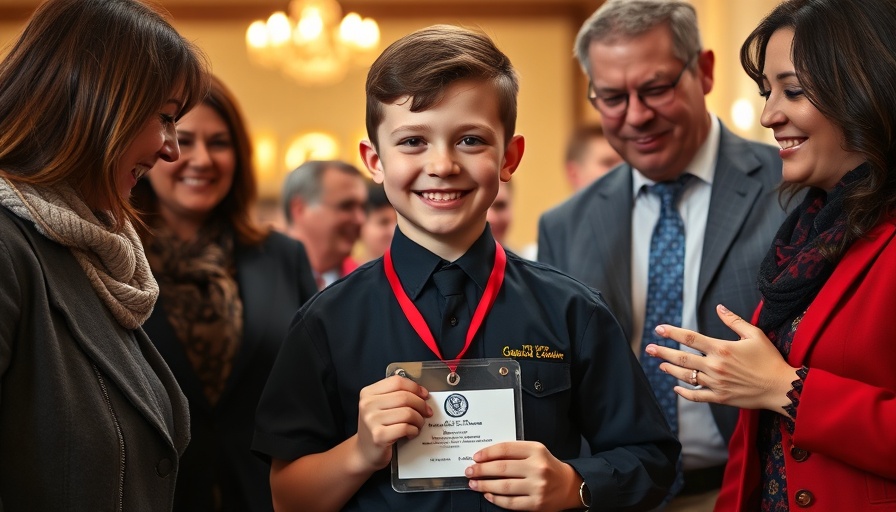
Unexpected Recognition: Standing Ovations and the Power of Resilience
This past week, during a joint address to Congress, President Trump honored DJ Daniel, a bright 13-year-old who has battled brain cancer for six years. In a deeply emotional moment, Trump celebrated DJ's spirit and passion for law enforcement, declaring him an agent of the United States Secret Service. This gesture resonated deeply with the audience, who stood to applaud DJ's resilience and determination.
Contradictions in Funding: A Closer Look at Federal Support for Cancer Research
However, amidst the celebration of this young survivor, stark contradictions emerged. Just weeks before DJ's recognition, the Trump administration proposed a $4 billion cut to funding for essential cancer research programs. This proposed budgetary adjustment targeted vital grants that support research initiatives across the nation, including those focused on pediatric cancers. Such cuts, if enacted, could severely cripple ongoing efforts to advance medical treatments and care for children battling life-threatening diseases.
The Cost of Cuts: Implications for Pediatric Patients and their Families
The ramifications of these potential funding cuts are particularly dire for pediatric cancer patients. With the Pediatric Cancer Research Foundation emphasizing the importance of continued research funding, the chilling effect of budget cuts cannot be overstated. Danielle Fragalla, CEO of the Foundation, stated that these reductions could be a massive setback for the community—affecting progress in prevention, care, and innovative solutions vital for young cancer patients and their families. Fragalla emphasizes the urgent need for advancement in care to sustain the hope that families have cultivated over years of progress.
Legal Challenges and Community Response: A Call to Action
In response to the proposed cuts, universities and research centers have taken legal action, asserting that the cuts violate established federal regulations. This lawsuit highlights the critical importance of maintaining funding for research that ensures the health and well-being of countless American families. The ramifications of slashing these invaluable funds extend beyond just monetary implications; they present a barrier to discovery and innovation in critical health fields affecting millions.
Hope in Action: The Role of Community and Organizations
The pediatric cancer community has rallied in support of continued funding, characterized by passionate advocates who seek to reinforce the message that cutting resources is not a viable path forward. The advocacy of strong organizations like the Pediatric Cancer Research Foundation showcases the ongoing commitment to improving outcomes for children with cancer. Their focused initiatives are pivotal in ensuring every child and family affected has access to critical resources—such as mentorship, cutting-edge treatment, and emotional support.
Facing Forward: What This Means for Future Generations
As we reflect on the challenges ahead, it becomes clear that the fight against pediatric cancer cannot occur in isolation. It involves a collective effort from policymakers, researchers, families, and local communities. DJ Daniel’s story is one of tenacity and inspiration, reminding us all of the strength within our communities and the necessity of advocating for sustained support for the research that could one day lead to a cure.
The bright light shining from DJ's achievements underscores the importance of our continuous fight against funding cuts that threaten future advancements in health care. Support for initiatives and programs that promote childhood cancer research should remain a priority, ensuring that no child or parent endures the helplessness that comes from reduced access to necessary medical research.
 Add Row
Add Row  Add
Add 



Write A Comment